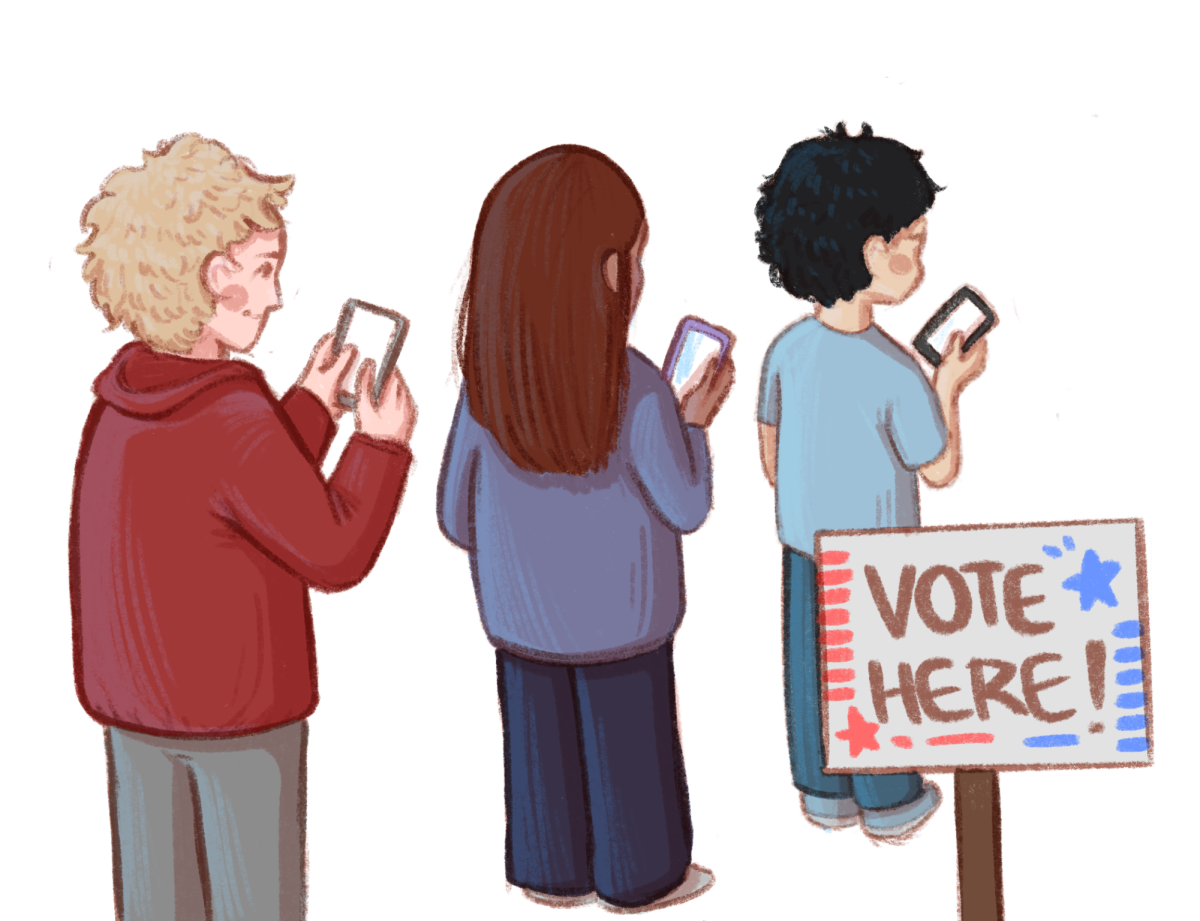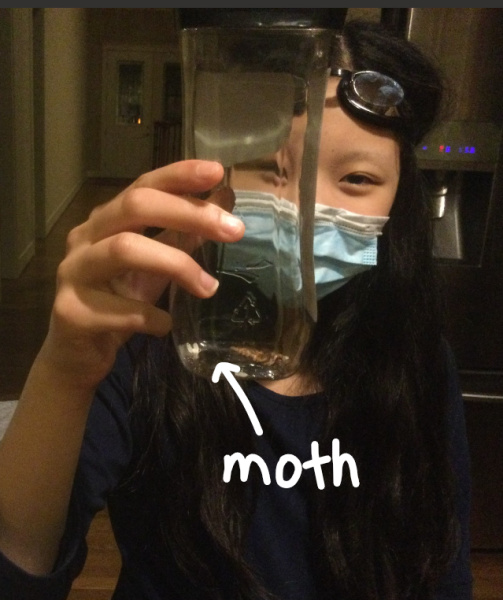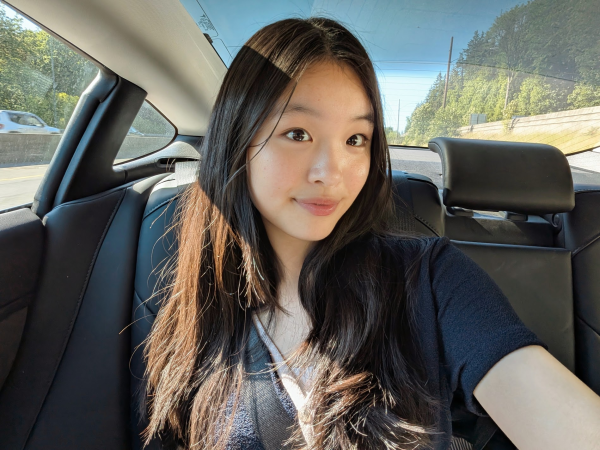YES
Nami G. ’28
As the election draws near, people have turned to social media to express their views and to understand what the candidates have to say to their potential voters. For the past few years, social media has gradually become more ingrained in our society, and the question on its appropriateness of use has increased.
Currently, politicians use social media to connect to potential voters who might otherwise not know about either party and be unmotivated to vote. Celebrities, too, have encouraged people to vote by posting registration links. For example, Reuters analyzed Taylor Swift’s political social media perspective and estimated that 406,000 people clicked on her provided voting link with many registering to vote. Without social media, it would be difficult for prominent figures to encourage those who don’t read the news to vote. It’s also proved a useful tool to attract Gen Z voters, who use social media more than older generations and make up a large portion of the voting population (around 8.3 million people). Additionally, it has been shown by Tufts’ CIRCLE (Center for Information and Research on Civic Learning and Engagement) that the voting rate is 24% among those who are 20-29 and 18% for those 18-19. Social media is helping increase the voting percentage for those in their late teens and adults, so the vote for president is truly by the people and not just people of a certain age demographic.
Isn’t it a good thing that social media is promoting the news to those who don’t typically engage with elections? It has also been used to organize protest movements such as the BLM movement and protests on mental health issues, and many say social media is a net positive for democracy. “The internet is making it easier to organize social movements today, for good and ill,” says Shira Ovide from The New York Times.
The Pew Research Center conducted a survey in 15 countries, where they discovered that around 57% of adults consider social media to be good for democracy, compared to 35% that claim it isn’t (the remaining 8% were neutral or didn’t have an opinion). In addition, almost 75% of respondents say that it’s helped them keep up with world issues that they would otherwise not pay attention to. Without social media, people might not keep up with world issues, leading to a more divided and less informed world. With the aid of social media, people can learn crucial facts about global issues, which they may then decide to do further research on in order to understand the world outside their country.
Though social media may contain misinformation, this is a problem of our society, not social media itself. Politicians themselves have been shown lying during debates and in their campaign speeches, and news sources can also spread factually incorrect information or change the wording of their information in order to influence people’s opinions. For example, we learned through our advisory’s media literacy program how articles can change their wording or even the information they report to skew people’s opinions. Meanwhile, social media promotes a host of perspectives — not just those that have the influence of the people. Social media is good at introducing political topics to users so they can do further research and begin to form their own political views.
The New York Times explains that social media has changed the face of activism, bringing underreported issues such as mental health and police brutality to light. With social media, people can easily see when a protest is going on in order to join or even to conduct further research on the topic. Without social media, activism would not have the power it does now.
In conclusion, social media is positive because it can shine a light on various topics and allows people to learn about world issues that they wouldn’t otherwise know about. As a result, social media brings important issues to light, promotes attention to worldwide issues, and encourages younger generations to participate in politics all which lead to a more united and informed world.
NO
Natalie G. ’28
“Social media is a system that thrives on misinformation and division,” says Jaron Lanier, American engineer and author of multiple books on social media.
As the presidential election approaches, social media usage regarding the upcoming event has become increasingly negative. Take Taylor Swift’s endorsement of Kamala Harris. This September, she wrote a couple of paragraphs stating her support for Harris, more than half of which was opinionated with little to no factual evidence to support it. Most Swifties are on the younger side and less exposed to the nuances of politics. Thus, thousands rushed for voting registration with little to no research or experience, voting not for their own beliefs and values but to imitate a celebrity. Sure, Taylor Swift’s Instagram post could be a form of “activism,” but most influencer endorsements like hers lack depth, leading voters to decide based on popularity rather than informed choices for the country’s future.
Moreover, social media has a fastpaced nature, which can lead to the oversimplification of complex issues. This makes it increasingly difficult for voters to sincerely engage in policy discussions. Instagram reels and YouTube shorts all have short time limits – 90 seconds and three minutes, respectively – neither of which is enough time for a deep dive into any political topic. Longer political videos tend to be too boring or too long for more uninterested voters, leading to a lack of detailed knowledge in many social media users.
On top of oversimplifying complex topics, social media is one of the main contributors to the spread of misinformation. Take Donald Trump’s infamous words about immigrants: “In Springfield, they’re eating the dogs, the people that came in, they’re eating the cats… They’re eating the pets of the people that live there.” Where did this baseless claim come from? Social media. According to CNN, this rumor originated from a private Facebook group called “Springfield Ohio Crime and Information.” Just a screenshot later, the rumor circulated the world, flooding people’s foryou pages and even reaching the presidential debate. This is just one out of the millions of cases of misinformation that occur every day. Despite people working to combat the influx of false information, the immediate consequences are dire and irreversible.
Social media contains a variety of viewpoints — that is indisputable. People all over the world can create their own videos or type a few sentences to express their thoughts on a whim. However, the real question is: are these viewpoints being showcased to everyone? According to Talia Jomini Stroud, director of the Center for Media Engagement at the University of Texas in Austin, “Algorithms are extremely influential in people’s on-platform experiences and there is significant ideological segregation in political news exposure.” This means that social media algorithms are more likely to showcase a similar viewpoint as the user, making them less receptive to alternative perspectives and more fixated on their own ideology. Over time, this reinforces extreme views and deepens political divides, leading to increased hostility between opposing groups.
Hostility between opposing groups leads to another onslaught of issues. Candidates, their supporters, and even their voters can become targets of aggressive online attacks, which include personal insults, threats, and doxing. Because of this, social media creates a climate of fear that deters individuals from voting and engaging with politics, negatively impacting both the upcoming election and the state of our democracy.
All in all, social media has a detrimental effect on the presidential election with its rampant spread of incomplete or false information, influencer influence, and unfriendly environment. Although social media seems to be here to stay, it’s important for us to be aware of these issues and try our best to resolve them.




